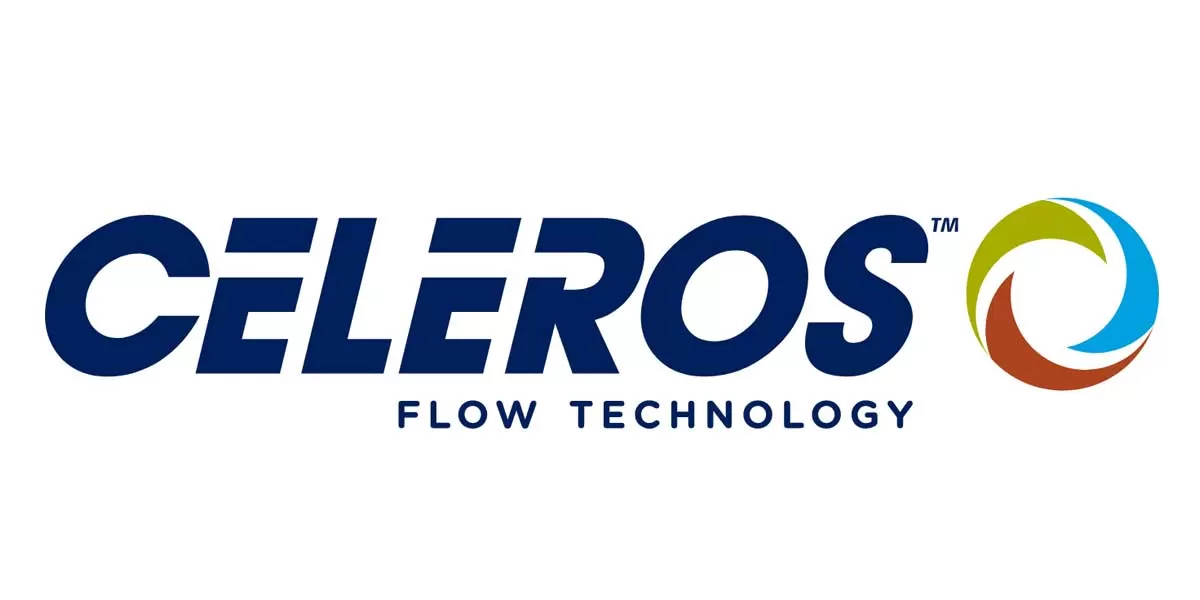- Home
- Real Estate
- New Age Realtors

New Age Realtors
In a sector with forward and backward linkages with over 165 industries, they are investor partners, advisors, negotiators, helpers, even friends, philosophers and guides! They are, of course, India´s realtors.
Role play
´As the interface with the consumer in the transaction process, realtors are the most important human resource in the business chain,´ says Hira Lall Bagra, Director-Admin & Projects, Araham Realty, and President, National Association of Realtors (NAR)-India. To this, Farook Mahmood, Chairman & Managing Director, Silverline Group, adds, ´We realtors are consultants and facilitators in all aspects of a transaction, from introduction to negotiation, finalisation and delivery.´ And Vanessa de Souza, Director, Empress Estate, and President, Estate Agent Association of Pune, points out, ´While sourcing properties and plans depends on skills like communication and marketing, it is important that you are always available till the transaction is done followed by after sales, which is very crucial.´
Most realtors are closely connected to the environment or market they operate in. Sharing a developer´s - the seller - perspective, Smeeta Neogi, Vice President-Marketing, Mahindra Lifespace Developers, says, ´They analyse the market and environment, evaluate alternate scenarios and then recommend the right options to their clients. Aware of the nuances of paperwork, they also facilitate the buying process and legal documentation, whether it is a land transaction or bulk deal for the developer or an individual unit sale for a client.´ Despite the significance of this industry, though, the realtor´s community has so far remained unorganised. ´Interestingly, we have to protect the interest of buyers and sellers as a mediator!´ says Deepak Kohli, CEO & Creative Director, Deep Realtors. ´There is no authority or defined rules to run the show in India.´
The difference overseas
True. In India, anyone can hang up his shingle and would be recognised as a realtor as the profession is not defined here. Regularising the realtor´s lobby in the country is a definite concern as it is such big business.
The concept of property as an investment commodity is comparatively new in India and key differences exist between how real estate is practiced here and in more ´mature´ markets. ´While most developed real-estate industries operate under a culture of brokerage, the vast majority of real-estate practitioners in India are largely developers who are purchasing, developing, and selling their own residential and commercial property,´ observes Zachary M Benjamin, CIPS, Manager, International Market Development, Commercial and Global Services, NAR. ´Interaction with professionals from other countries can help develop a brokerage model in India.´ He also believes that while India has made great strides oflate to create standards of practice for its real-estate professionals, Indian practitioners can learn much from the professionalism and business integrity in other countries.
To this, de Souza expresses the need for ´identity´, saying, ´While we lack identity, with education and training we can really go places and widen our horizons.´ And Mahmood weighs in, adding, ´While dedication is another important thing, India also lacks the code of conduct and code of ethics that NAR strictly follows.´ That said, Bagra confirms that ´NAR-India is working on reforms to elevate the industry and impart training and education to members through its knowledge partners like ISB, NICMAR, GNLU, Learn Goggle and IIRE.´
Bringing in transparency
Things are changing for the better. As Mahmood says,´We are moving towards professionalism.´ And this is really the key. Calling for licensing to bring a greater sense of responsibility among realtors, Kohli asks, ´When architects and lawyers also have license numbers, why not realtors?´ Also, a code of conduct and ethics is crucial to ensure transparency and scale up professionalism. To ensure transparency, Mahmood offers a few questions realtors can pose themselves: ´Is it the truth?´ ´Is it fair to all?´ ´Is it beneficial?´ ´Is it fair for the consumer?´
The realtor community in India does have a single, national-level umbrella organisation: NAR-India. ´It has not only been fashioned as an umbrella organisation representing the interest of thousands of realtors all over the country but an organisation that aims to elevate the standard of practice of the real-estate brokerage business to a global level where ethics, transparency, accountability, rule of law and good governance prevail,´ shares Bagra. NAR-India currently operates with 26 city associations representing over 25,000 members.
From local to glocal
Tracing the history of the business in India, it was only after liberalisation that international property consultants (IPCs) came to India offering best practices and international-level services.
In no time, a localised market became more of a glocalised one.
Today, IPCs play a complex and responsibility-driven role in all real-estate transactions, especially when it comes to high-value property assets. They bring to the table a potent combination of technical knowhow and market insight across all verticals of real estate. They help both domestic and international clients to formulate optimal real-estate strategies in the Indian market, which at all times functions within a complex framework of policies and regulations. Anuj Puri, Chairman & Country Head, JLL India, says, ´The value proposition offered by IPCs is that they are hardwired into the global market and operate from a standpoint of uncompromising ethics.´ He adds that as brokerage agencies do not have the advantage of diversified service offerings beyond selling and leasing, different strategies and adaptability have helped IPCs to maintain revenue flows to a significant extent.
So have IPCs been a challenge to the local community?
´The IPCs were initially a challenge to local realtors by eating away into the corporate bulk markets with their organised and professional approach,´ responds Bagra. ´But in course of time, with training and education, local realtors have started learning professional techniques too.´ de Souza adds, ´Also, as we are a known face in many builders´ offices, IPCs tend to depend on local brokers.´ In fact, Mahmood recalls that many people who worked with him in the past are now posted with IPC firms. In his view, both IPCs and realtors will grow in strength provided ´you are professional, you know what you are doing, and you deliver to the client´. Naushad Panjwani, Senior Executive Director, Knight Frank India, agrees. ´The two will continue to coexist because the market is large and there are different types of clients to be serviced.´ He emphasises that IPCs function in main residential areas whereas local dealers handle peripheral properties. Also, IPCs can produce only a certain amount of ticket size. So when it comes to smaller properties, the market is open for small-time dealers.
Kohli has his doubts, though. ´IPCs come with international practices that are not seen here,´ he insists.´What realtors need is a body or framework stating a minimum qualification criteria and a fixed commission that can be quoted.´ Meanwhile, speaking from her experience, Neogi says, ´The local realtor is more a family friend and clients trust them implicitly. Often, they are advisers to not only the real-estate portfolio but the entire investment portfolio of their clients. They are familiar not only with the local nuances but know local developers personally and have a very high market connect to provide the right advice.´ That said, a real-estate consultant or agency, brokerage house or realtor will always be in demand, provided there is a niche market they are servicing well.
The next level
Today, for the Indian realtor, change has been an imperative, not a choice. To match the IPCs in terms of professionalism and transparency, they have had to embrace technology. Internet research and online portals are becoming increasingly significant when it comes to buying property. Panjwani tells us, ´In the past four years, $43 billion worth of real-estate deals - of which residential was $31 billion - were researched on Google before being converted into a financial transaction.´
Thus, the new-age broker has to be well-informed, educated and tech-savvy. ´With real estate-portals, there is a broader network for all mediators and we can do deals anywhere across India from one single location,´ avers Kohli. ´You just need to sign up to the portal and pay an amount.´ de Souza seconds this, saying, ´Today, there are many Web brokers who list their properties on these portals. So, from the early days of roaming sites, realtors today are found sitting on laptops and iPads.´
Further, Bagra tells us that NAR-INDIA has recently launched a mobile app for its members and is present in all social networking sites. ´We are working on establishing our own multi-listing system for our members,´ he informs. ´Also, on the NAR-India website, we have uploaded all standard legal formats concerning real-estate transactions and the training and education courses available.´ For Mahmood, the portals and Web technology have been the biggest change that has ever transpired in the whole industry, transforming the entire dynamics of doing business. He shares an instance: ´Earlier, we used to put up billboards, signboards and newspaper advertisements but now it is all on the Web. A consumer goes onto a portal and there are more transactions happening on the Web than on ground.´ Going forward, he sees social media and portals as the future of the real-estate business.
Cities of opportunity
All considered, in a growing country like India, every region has its own potential for the real-estate business to grow. On an average, a realtor contributes to 70-80 per cent of the total sales and about 20-25 per cent of the business is earned through pre-launch offers. Kohli adds, ´At times, the entire project is sold through a realtor alone.´
What are the cities to really watch out for, though? ´Besides the metros, Pune, Ahmedabad, Naya Raipur in Chhattisgarh, Bhubaneswar, Kochi and Patna are emerging with lots of growth potential,´ answers Bagra, sharing his list with us. ´Also, the demand in Tier-II and Tier-III cities is very bright in view of our prime minister´s vision to have 100 new smart cities in the next five years.´ For Mahmood, Bengaluru as an IT hub holds immense opportunities. Apart from that, he says, ´There is a lot of excessive inventory in Gurgaon and Noida and other potential cities include the extensions of Pune, Chennai and Hyderabad.´ de Souza also points out to tourist destinations like Goa where, she says, ´the catchment will not be as much as in metro cities, but there will be holiday homes.´ Also, Tier-II and Tier-III cities in the eastern part of the country like Siliguri, Durgapur, Bokaro, Asansol, Guwahati and Dhanbad have grown substantially in the past few years and hold great opportunities in real estate. Bagra agrees, adding, ´The city of Kolkata is evolving into a vibrant one and growing far and wide at a pace never seen before. There is huge potential.´ For their part, IPCs have a different focus. Puri tells us that JLL India operates in Mumbai, Delhi NCR, Pune, Bengaluru, Kochi, Chennai, Coimbatore, Kolkata, Chandigarh, Hyderabad, Ahmedabad and Sri Lanka. ´These cities see the highest requirement from clients across our service offerings,´ he reveals. ´However, as more Tier-II and Tier-III cities emerge as stronger contenders, we will expand into those regions as well.´ Here, Panjwani shares a different viewpoint on Tier-II cities. ´IPCs do not really function in Tier-II cities as the ticket size is insufficient and the market is not ready for their services,´ he says. ´In fact, realtors in such cities are learning the best norms and practices from IPCs and are trying to adopt the same.´
The way forward
With the focus cities, it is evident that local brokers will continue to play their part and IPCs will not edge them out or compete with them. Hence, Puri avers, ´No entity, however large, in this huge market will ever hold a monopolistic sway over the entire business domain.´ In fact, he offers, ´There are ample opportunities for partnership, especially when it comes to high-value requirements or opportunities that local agents lack the credibility or capability to service.´ And Neogi is clear when she says, ´Realtors not only advice their clients but also the developer by providing market intelligence, selling advice, and contributing to the marketing and release strategy. It is a healthy relationship.´
Interestingly, this healthy relationship aside, occasionally realtors themselves evolve into developers in a sort of natural progression. ´A realtor is involved in getting developers their land. With this experience, you virtually have it engraved in you,´ says Mahmood, highlighting that one of the founders of Mumbai-based K Raheja Corp and Purvankara, two top developers, were realtors in the past.
Whether they want to turn developers or continue to grow as realtors, it is undeniable that new-age realtors must be on top of their game - as Bagra describes it, ´well-informed, knowledgeable, trained and tech-savvy.´ However, the Government must play its part too - in coming years, it will have to introduce licensing to regulate the sector.
As Panjwani reasons, ´This will protect customers from poor service and include the IPC as well as local realtors, which will help them prosper.´ An idea whose time has clearly come.
National Association of Realtors
Code Of Ethics And
Standards Of Practice
(Effective January 1, 2014)
Article 1
When representing a buyer, seller, landlord, tenant, other client as an agent, Realtors« pledge themselves to protect and promote the interests of their client. This obligation to the client is primary, but it does not relieve Realtors« of their obligation to treat all parties honestly. When serving a buyer, seller, landlord, tenant or other party in a non-agency capacity, Realtors« remain obligated to treat all parties honestly. (Amended 1/01)
Article 2
Realtors« shall avoid exaggeration, misrepresentation, or concealment of pertinent facts relating to the property or the transaction. Realtors« shall not, however, be obligated to discover latent defects in the property, to advise on matters outside the scope of their real-estate license, or to disclose facts which are confidential under the scope of agency or non-agency relationships as defined by state law. (Amended 1/00)
Article 3
Realtors« shall cooperate with other brokers except when cooperation is not in the client´s best interest. The obligation to cooperate does not include the obligation to share commissions, fees, or to otherwise compensate another broker. (Amended 1/95)
Article 4
Realtors« shall not acquire an interest in or buy or present offers from themselves, any member of their immediate families, their firms or any member thereof, or any entities in which they have any ownership interest, any real property without making their true position known to the owner or the owner´s agent or broker. In selling property they own, or in which they have any interest, Realtors« shall reveal their ownership or interest in writing to the purchaser or the purchaser´s representative. (Amended 1/00)
Article 5
Realtors« shall not undertake to provide professional services concerning a property or its value where they have a present or contemplated interest unless such interest is specifically disclosed to all affected parties.
Article 6
Realtors« shall not accept any commission, rebate, or profit on expenditures made for their client, without the client´s knowledge and consent. When recommending real-estate products or services (eg, homeowner´s insurance, warranty programmes, mortgage financing, title insurance, etc), Realtors« shall disclose to the client or customer to whom the recommendation is made any financial benefits or fees, other than real-estate referral fees, the REALTOR« or REALTOR«´s firm may receive as a direct result of such recommendation. (Amended 1/99)
Article 7
In a transaction, Realtors shall not accept compensation from more than one party, even if permitted by law, without disclosure to all parties and the informed consent of the REALTOR´s client or clients. (Amended 1/93) (For the full version, log on to www.ConstructionWorld.in/webx)
International Take
Zachary M Benjamin, CIPS, Manager, International Market Development, Commercial and Global Services, National Association of Realtors«, on the international code and ethics that can be suitable for India to make the realtors community more organised and professional and also increase transparency.
´The National Association of Realtors« (NAR) in the US was the first real estate organisation to adopt a code of ethics over 100 years ago. This code is still the model for all other real estate industry codes of ethics worldwide. Our Indian partner organisation, NAR-India, employs a code of ethics that distinguishes its members as adhering to a higher standard of professionalism than others. The NAR´s Code of Ethics, adopted in 2013, changed the face of the real estate industry. For the first time, this code created a class of professionals whom the consumer could trust to operate ethically. In the US, the association enforces the code, levying penal measures on those who violate it. It works with the authorities in cases when ethics violations include violations of the legal code governing the real estate industry. Today, being a member of NAR or any of our partner organisations worldwide -including NAR-India - distinguishes a real estate professional as one who is trustworthy, knowledgeable, and obligated to operate at the highest levels of professionalism.´
Why choose a realtor?
1. Realtors« (defined exclusively as members of the National Association of Realtors« in the USA, which can also be joined for a small fee by members of NAR-India) are obligated to adhere to the Code of Ethics, which automatically raises them to a higher level of accountability than other professionals.
2. Realtors« should be well-versed in aspects of the sale and purchase of property that developers are not necessarily educated to address. These include real-estate law, tax implications of property ownership, government regulations and paperwork for buyers and sellers, and other key details that an untrained developer may not be able to advise a consumer.
3. Realtors« have professional expertise in marketing property to appropriate audiences, which are skills in which a developer may not necessarily be trained.
4. Realtors« have strong business networks that allow them to help the seller or buyer procure the services of notaries, attorneys, appraisers, and other ´allied professionals´ whom the developer may not necessarily have access to or know how or when to employ.
(By Zachary M Benjamin, CIPS, Manager, International Market Development, Commercial and Global Services, NAR)
- Realtors
- Hira Lall Bagra
- Araham Realty
- NAR India
- Farook Mahmood
- Silverline Group
- Vanessa de Souza
- Empress Estate
- Smeeta Neogi
- Mahindra Lifespace Developers
- Land Transaction
- Bulk Deal
- Deepak Kohli
- Deep Realtors
- Real Estate
- Zachary M Benjamin
- CIPS
- ISB
- NICMAR
- GNLU
- Learn Goggle
- IIRE
- IPC
- Anuj Puri
- JLL India
- Brokers
- Naushad Panjwani
- Knight Frank India
- Dealer
- K Raheja Corp
- Purvankara
- National Association of Realtors
- US
India´s realtors are becoming increasingly transparent and tech-savvy in order to stay relevant in a glocal and diversified market. In a sector with forward and backward linkages with over 165 industries, they are investor partners, advisors, negotiators, helpers, even friends, philosophers and guides! They are, of course, India´s realtors. Role play ´As the interface with the consumer in the transaction process, realtors are the most important human resource in the business chain,´ says Hira Lall Bagra, Director-Admin & Projects, Araham Realty, and President, National Association of Realtors (NAR)-India. To this, Farook Mahmood, Chairman & Managing Director, Silverline Group, adds, ´We realtors are consultants and facilitators in all aspects of a transaction, from introduction to negotiation, finalisation and delivery.´ And Vanessa de Souza, Director, Empress Estate, and President, Estate Agent Association of Pune, points out, ´While sourcing properties and plans depends on skills like communication and marketing, it is important that you are always available till the transaction is done followed by after sales, which is very crucial.´ Most realtors are closely connected to the environment or market they operate in. Sharing a developer´s - the seller - perspective, Smeeta Neogi, Vice President-Marketing, Mahindra Lifespace Developers, says, ´They analyse the market and environment, evaluate alternate scenarios and then recommend the right options to their clients. Aware of the nuances of paperwork, they also facilitate the buying process and legal documentation, whether it is a land transaction or bulk deal for the developer or an individual unit sale for a client.´ Despite the significance of this industry, though, the realtor´s community has so far remained unorganised. ´Interestingly, we have to protect the interest of buyers and sellers as a mediator!´ says Deepak Kohli, CEO & Creative Director, Deep Realtors. ´There is no authority or defined rules to run the show in India.´ The difference overseas True. In India, anyone can hang up his shingle and would be recognised as a realtor as the profession is not defined here. Regularising the realtor´s lobby in the country is a definite concern as it is such big business. The concept of property as an investment commodity is comparatively new in India and key differences exist between how real estate is practiced here and in more ´mature´ markets. ´While most developed real-estate industries operate under a culture of brokerage, the vast majority of real-estate practitioners in India are largely developers who are purchasing, developing, and selling their own residential and commercial property,´ observes Zachary M Benjamin, CIPS, Manager, International Market Development, Commercial and Global Services, NAR. ´Interaction with professionals from other countries can help develop a brokerage model in India.´ He also believes that while India has made great strides oflate to create standards of practice for its real-estate professionals, Indian practitioners can learn much from the professionalism and business integrity in other countries. To this, de Souza expresses the need for ´identity´, saying, ´While we lack identity, with education and training we can really go places and widen our horizons.´ And Mahmood weighs in, adding, ´While dedication is another important thing, India also lacks the code of conduct and code of ethics that NAR strictly follows.´ That said, Bagra confirms that ´NAR-India is working on reforms to elevate the industry and impart training and education to members through its knowledge partners like ISB, NICMAR, GNLU, Learn Goggle and IIRE.´ Bringing in transparency Things are changing for the better. As Mahmood says,´We are moving towards professionalism.´ And this is really the key. Calling for licensing to bring a greater sense of responsibility among realtors, Kohli asks, ´When architects and lawyers also have license numbers, why not realtors?´ Also, a code of conduct and ethics is crucial to ensure transparency and scale up professionalism. To ensure transparency, Mahmood offers a few questions realtors can pose themselves: ´Is it the truth?´ ´Is it fair to all?´ ´Is it beneficial?´ ´Is it fair for the consumer?´ The realtor community in India does have a single, national-level umbrella organisation: NAR-India. ´It has not only been fashioned as an umbrella organisation representing the interest of thousands of realtors all over the country but an organisation that aims to elevate the standard of practice of the real-estate brokerage business to a global level where ethics, transparency, accountability, rule of law and good governance prevail,´ shares Bagra. NAR-India currently operates with 26 city associations representing over 25,000 members. From local to glocal Tracing the history of the business in India, it was only after liberalisation that international property consultants (IPCs) came to India offering best practices and international-level services. In no time, a localised market became more of a glocalised one. Today, IPCs play a complex and responsibility-driven role in all real-estate transactions, especially when it comes to high-value property assets. They bring to the table a potent combination of technical knowhow and market insight across all verticals of real estate. They help both domestic and international clients to formulate optimal real-estate strategies in the Indian market, which at all times functions within a complex framework of policies and regulations. Anuj Puri, Chairman & Country Head, JLL India, says, ´The value proposition offered by IPCs is that they are hardwired into the global market and operate from a standpoint of uncompromising ethics.´ He adds that as brokerage agencies do not have the advantage of diversified service offerings beyond selling and leasing, different strategies and adaptability have helped IPCs to maintain revenue flows to a significant extent. So have IPCs been a challenge to the local community? ´The IPCs were initially a challenge to local realtors by eating away into the corporate bulk markets with their organised and professional approach,´ responds Bagra. ´But in course of time, with training and education, local realtors have started learning professional techniques too.´ de Souza adds, ´Also, as we are a known face in many builders´ offices, IPCs tend to depend on local brokers.´ In fact, Mahmood recalls that many people who worked with him in the past are now posted with IPC firms. In his view, both IPCs and realtors will grow in strength provided ´you are professional, you know what you are doing, and you deliver to the client´. Naushad Panjwani, Senior Executive Director, Knight Frank India, agrees. ´The two will continue to coexist because the market is large and there are different types of clients to be serviced.´ He emphasises that IPCs function in main residential areas whereas local dealers handle peripheral properties. Also, IPCs can produce only a certain amount of ticket size. So when it comes to smaller properties, the market is open for small-time dealers. Kohli has his doubts, though. ´IPCs come with international practices that are not seen here,´ he insists.´What realtors need is a body or framework stating a minimum qualification criteria and a fixed commission that can be quoted.´ Meanwhile, speaking from her experience, Neogi says, ´The local realtor is more a family friend and clients trust them implicitly. Often, they are advisers to not only the real-estate portfolio but the entire investment portfolio of their clients. They are familiar not only with the local nuances but know local developers personally and have a very high market connect to provide the right advice.´ That said, a real-estate consultant or agency, brokerage house or realtor will always be in demand, provided there is a niche market they are servicing well. The next level Today, for the Indian realtor, change has been an imperative, not a choice. To match the IPCs in terms of professionalism and transparency, they have had to embrace technology. Internet research and online portals are becoming increasingly significant when it comes to buying property. Panjwani tells us, ´In the past four years, $43 billion worth of real-estate deals - of which residential was $31 billion - were researched on Google before being converted into a financial transaction.´ Thus, the new-age broker has to be well-informed, educated and tech-savvy. ´With real estate-portals, there is a broader network for all mediators and we can do deals anywhere across India from one single location,´ avers Kohli. ´You just need to sign up to the portal and pay an amount.´ de Souza seconds this, saying, ´Today, there are many Web brokers who list their properties on these portals. So, from the early days of roaming sites, realtors today are found sitting on laptops and iPads.´ Further, Bagra tells us that NAR-INDIA has recently launched a mobile app for its members and is present in all social networking sites. ´We are working on establishing our own multi-listing system for our members,´ he informs. ´Also, on the NAR-India website, we have uploaded all standard legal formats concerning real-estate transactions and the training and education courses available.´ For Mahmood, the portals and Web technology have been the biggest change that has ever transpired in the whole industry, transforming the entire dynamics of doing business. He shares an instance: ´Earlier, we used to put up billboards, signboards and newspaper advertisements but now it is all on the Web. A consumer goes onto a portal and there are more transactions happening on the Web than on ground.´ Going forward, he sees social media and portals as the future of the real-estate business. Cities of opportunity All considered, in a growing country like India, every region has its own potential for the real-estate business to grow. On an average, a realtor contributes to 70-80 per cent of the total sales and about 20-25 per cent of the business is earned through pre-launch offers. Kohli adds, ´At times, the entire project is sold through a realtor alone.´ What are the cities to really watch out for, though? ´Besides the metros, Pune, Ahmedabad, Naya Raipur in Chhattisgarh, Bhubaneswar, Kochi and Patna are emerging with lots of growth potential,´ answers Bagra, sharing his list with us. ´Also, the demand in Tier-II and Tier-III cities is very bright in view of our prime minister´s vision to have 100 new smart cities in the next five years.´ For Mahmood, Bengaluru as an IT hub holds immense opportunities. Apart from that, he says, ´There is a lot of excessive inventory in Gurgaon and Noida and other potential cities include the extensions of Pune, Chennai and Hyderabad.´ de Souza also points out to tourist destinations like Goa where, she says, ´the catchment will not be as much as in metro cities, but there will be holiday homes.´ Also, Tier-II and Tier-III cities in the eastern part of the country like Siliguri, Durgapur, Bokaro, Asansol, Guwahati and Dhanbad have grown substantially in the past few years and hold great opportunities in real estate. Bagra agrees, adding, ´The city of Kolkata is evolving into a vibrant one and growing far and wide at a pace never seen before. There is huge potential.´ For their part, IPCs have a different focus. Puri tells us that JLL India operates in Mumbai, Delhi NCR, Pune, Bengaluru, Kochi, Chennai, Coimbatore, Kolkata, Chandigarh, Hyderabad, Ahmedabad and Sri Lanka. ´These cities see the highest requirement from clients across our service offerings,´ he reveals. ´However, as more Tier-II and Tier-III cities emerge as stronger contenders, we will expand into those regions as well.´ Here, Panjwani shares a different viewpoint on Tier-II cities. ´IPCs do not really function in Tier-II cities as the ticket size is insufficient and the market is not ready for their services,´ he says. ´In fact, realtors in such cities are learning the best norms and practices from IPCs and are trying to adopt the same.´ The way forward With the focus cities, it is evident that local brokers will continue to play their part and IPCs will not edge them out or compete with them. Hence, Puri avers, ´No entity, however large, in this huge market will ever hold a monopolistic sway over the entire business domain.´ In fact, he offers, ´There are ample opportunities for partnership, especially when it comes to high-value requirements or opportunities that local agents lack the credibility or capability to service.´ And Neogi is clear when she says, ´Realtors not only advice their clients but also the developer by providing market intelligence, selling advice, and contributing to the marketing and release strategy. It is a healthy relationship.´ Interestingly, this healthy relationship aside, occasionally realtors themselves evolve into developers in a sort of natural progression. ´A realtor is involved in getting developers their land. With this experience, you virtually have it engraved in you,´ says Mahmood, highlighting that one of the founders of Mumbai-based K Raheja Corp and Purvankara, two top developers, were realtors in the past. Whether they want to turn developers or continue to grow as realtors, it is undeniable that new-age realtors must be on top of their game - as Bagra describes it, ´well-informed, knowledgeable, trained and tech-savvy.´ However, the Government must play its part too - in coming years, it will have to introduce licensing to regulate the sector. As Panjwani reasons, ´This will protect customers from poor service and include the IPC as well as local realtors, which will help them prosper.´ An idea whose time has clearly come. National Association of Realtors Code Of Ethics And Standards Of Practice (Effective January 1, 2014) Article 1 When representing a buyer, seller, landlord, tenant, other client as an agent, Realtors« pledge themselves to protect and promote the interests of their client. This obligation to the client is primary, but it does not relieve Realtors« of their obligation to treat all parties honestly. When serving a buyer, seller, landlord, tenant or other party in a non-agency capacity, Realtors« remain obligated to treat all parties honestly. (Amended 1/01) Article 2 Realtors« shall avoid exaggeration, misrepresentation, or concealment of pertinent facts relating to the property or the transaction. Realtors« shall not, however, be obligated to discover latent defects in the property, to advise on matters outside the scope of their real-estate license, or to disclose facts which are confidential under the scope of agency or non-agency relationships as defined by state law. (Amended 1/00) Article 3 Realtors« shall cooperate with other brokers except when cooperation is not in the client´s best interest. The obligation to cooperate does not include the obligation to share commissions, fees, or to otherwise compensate another broker. (Amended 1/95) Article 4 Realtors« shall not acquire an interest in or buy or present offers from themselves, any member of their immediate families, their firms or any member thereof, or any entities in which they have any ownership interest, any real property without making their true position known to the owner or the owner´s agent or broker. In selling property they own, or in which they have any interest, Realtors« shall reveal their ownership or interest in writing to the purchaser or the purchaser´s representative. (Amended 1/00) Article 5 Realtors« shall not undertake to provide professional services concerning a property or its value where they have a present or contemplated interest unless such interest is specifically disclosed to all affected parties. Article 6 Realtors« shall not accept any commission, rebate, or profit on expenditures made for their client, without the client´s knowledge and consent. When recommending real-estate products or services (eg, homeowner´s insurance, warranty programmes, mortgage financing, title insurance, etc), Realtors« shall disclose to the client or customer to whom the recommendation is made any financial benefits or fees, other than real-estate referral fees, the REALTOR« or REALTOR«´s firm may receive as a direct result of such recommendation. (Amended 1/99) Article 7 In a transaction, Realtors shall not accept compensation from more than one party, even if permitted by law, without disclosure to all parties and the informed consent of the REALTOR´s client or clients. (Amended 1/93) (For the full version, log on to www.ConstructionWorld.in/webx) International Take Zachary M Benjamin, CIPS, Manager, International Market Development, Commercial and Global Services, National Association of Realtors«, on the international code and ethics that can be suitable for India to make the realtors community more organised and professional and also increase transparency. ´The National Association of Realtors« (NAR) in the US was the first real estate organisation to adopt a code of ethics over 100 years ago. This code is still the model for all other real estate industry codes of ethics worldwide. Our Indian partner organisation, NAR-India, employs a code of ethics that distinguishes its members as adhering to a higher standard of professionalism than others. The NAR´s Code of Ethics, adopted in 2013, changed the face of the real estate industry. For the first time, this code created a class of professionals whom the consumer could trust to operate ethically. In the US, the association enforces the code, levying penal measures on those who violate it. It works with the authorities in cases when ethics violations include violations of the legal code governing the real estate industry. Today, being a member of NAR or any of our partner organisations worldwide -including NAR-India - distinguishes a real estate professional as one who is trustworthy, knowledgeable, and obligated to operate at the highest levels of professionalism.´ Why choose a realtor? 1. Realtors« (defined exclusively as members of the National Association of Realtors« in the USA, which can also be joined for a small fee by members of NAR-India) are obligated to adhere to the Code of Ethics, which automatically raises them to a higher level of accountability than other professionals. 2. Realtors« should be well-versed in aspects of the sale and purchase of property that developers are not necessarily educated to address. These include real-estate law, tax implications of property ownership, government regulations and paperwork for buyers and sellers, and other key details that an untrained developer may not be able to advise a consumer. 3. Realtors« have professional expertise in marketing property to appropriate audiences, which are skills in which a developer may not necessarily be trained. 4. Realtors« have strong business networks that allow them to help the seller or buyer procure the services of notaries, attorneys, appraisers, and other ´allied professionals´ whom the developer may not necessarily have access to or know how or when to employ. (By Zachary M Benjamin, CIPS, Manager, International Market Development, Commercial and Global Services, NAR)

Celeros and Westinghouse Suppliers Meet U.S. Congress for AP1000
Celeros Flow Technology (Celeros FT) joined more than 30 Westinghouse Electric Company supply chain partners recently to meet with members of the U.S. Congress to discuss the significant benefits of deploying proven AP1000 nuclear technology in the U.S. and overseas. With more than six decades of experience as a lifecycle partner to the world’s nuclear industry, Celeros FT brought many expert insights to the discussion. Bill Cronauer, Regional Commercial Director, Americas and Ken Lazzara, Copes Vulcan Global Commercial Lead, Celeros FT, highlighted the economic impact and manufacturing..

Union Properties Reports 18.2% Revenue Growth Q1 2025 Results
Union Properties PJSC announced its financial results for the first quarter of 2025, reporting a strong start to the year with 18.2% increase in revenue, reaching AED163 million compared with AED138 million in Q1 2024. This revenue growth is expected to continue, supported by strategic initiatives and project launches, with significant increases anticipated each quarter. This solid performance underscores the Company’s continued focus on its core operations and the positive contributions of its high-performing subsidiaries across the UAE’s Real Estate sector. Gross profit increased to..

World Cement Association's Comment on Linking UK and EU carbon markets
Fabien Charbonnel, Director at the World Cement Association (WCA) and Directeur Général, Cem’In’Eu comments, “I believe a unified carbon market reduces the risk of competitive distortion and encourages fairer competition across borders. Consistent carbon pricing mechanisms promote efficiency and provide clarity for businesses operating internationally. For UK-based cement producers, alignment could remove disadvantages when exporting to the EU if UK carbon prices exceed those in Europe. However, it is worth noting that EU producers exporting to the UK would similarly benefit from great..
Latest Updates
Advertisement
Recommended for you
Advertisement
Subscribe to Our Newsletter
Get daily newsletters around different themes from Construction world.
Advertisement
Advertisement
Advertisement
subscribe to the newsletter
Don't miss out on valuable insights and opportunities
to connect with like minded professionals














